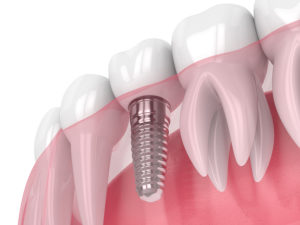 Deciding how to restore your smile after tooth loss can be a difficult process. There are a number of different options, such as fixed dental bridges, conventional dentures and dental implants, and it can be challenging to decide which one will best meet your needs.
Deciding how to restore your smile after tooth loss can be a difficult process. There are a number of different options, such as fixed dental bridges, conventional dentures and dental implants, and it can be challenging to decide which one will best meet your needs.
In order to evaluate and compare all of the treatment options available to you, it’s wise to consult with different providers to gather as much information as possible. For example, you will likely want to meet with a periodontist who can educate you about dental implants and their many benefits.
Such an initial evaluation also gives you an opportunity to ask any questions that you may have about the dental implant treatment process to help you determine if a tooth implant is the right fit for you.
Considerations in The Treatment Decision
A number of factors can influence the decision to proceed with a tooth implant. Some of those will be clinical indicators, while others will be based on patient preferences.
- Quality of available bone tissue at the tooth implant site: Patients who do not have enough bone at the implant site may need to undergo a preliminary bone graft to improve their chances of dental implant success.
- Overall health and ability to tolerate dental implant placement procedure: Some medical issues may need to be accommodated in order to proceed with dental implant placement.
- Pros and cons of various treatment options: Different treatment options have different advantages that you will want to weigh.
- Financial considerations/budget: Dental implants do have a higher initial cost, but they last longer and require fewer adjustments over time, so it’s important to estimate the total costs of treatment over your lifespan.
Dental Implant Consultation: What To Expect
Your initial evaluation with your periodontist gives you an opportunity to discuss the factors listed above in order to make your treatment decision. The periodontist will determine whether you are a good candidate for dental implants by collecting information about your case, such as:
- Visual examination of the site where the tooth is missing
- Photographs
- X-rays
- Three-dimensional imaging
We view ourselves as your treatment partners and want to make sure that you have all of the information you need to make the best decision for your unique needs. We encourage you to ask any questions that you may have that will help you to determine if a tooth implant is right for you.






